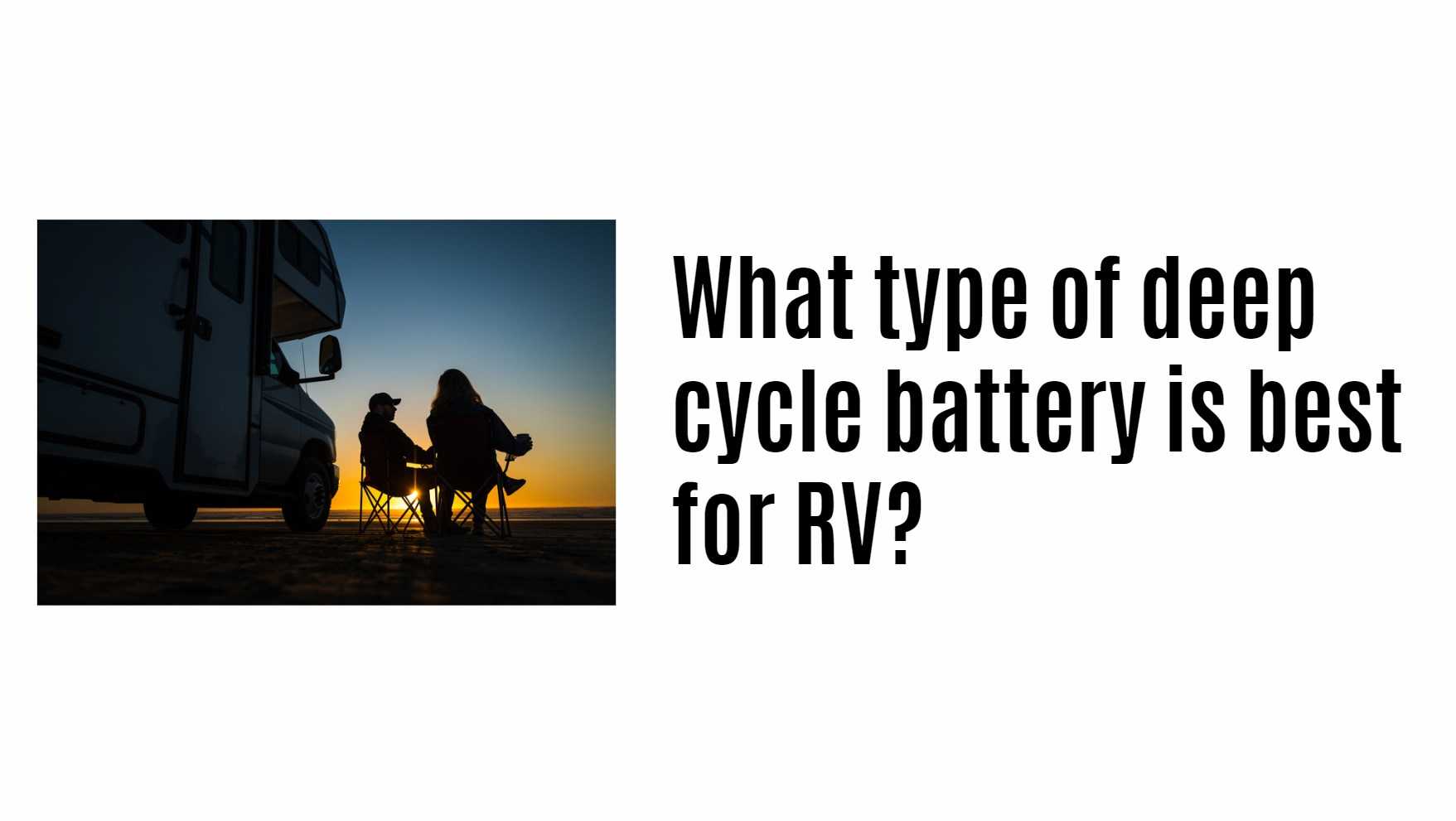Choosing the best deep cycle battery for your RV is crucial for ensuring reliable power during your travels. The ideal battery will depend on your specific needs, including power requirements, budget, and usage patterns. Lithium-ion batteries, particularly LiFePO4, are increasingly favored for their longevity and efficiency, while traditional AGM and lead-acid batteries remain popular due to their lower upfront costs.
Understanding Deep Cycle Batteries
Deep cycle batteries are designed to provide a steady amount of current over an extended period. Unlike starter batteries, which deliver short bursts of power, deep cycle batteries are ideal for applications requiring sustained energy output, such as running appliances in an RV.
Types of Deep Cycle Batteries
- Lead-Acid Batteries
- Flooded Lead-Acid: These are the most common and cost-effective option but require regular maintenance and can spill.
- AGM (Absorbed Glass Mat): Sealed and maintenance-free, AGM batteries offer better performance than flooded lead-acid batteries and are less prone to spillage.
- Lithium-Ion Batteries
- LiFePO4 (Lithium Iron Phosphate): Known for their long lifespan, lightweight design, and fast charging capabilities. They can be discharged more deeply without damage compared to lead-acid batteries.
Top Picks for RV Deep Cycle Batteries
1. Battle Born LiFePO4 Deep Cycle Battery
- Capacity: 100Ah
- Lifespan: 3000-5000 cycles
- Weight: 29 lbs
- Pros: Lightweight, fast charging, no maintenance required.
- Cons: Higher initial cost compared to lead-acid options.
2. Weize 12V 100AH Deep Cycle AGM Battery
- Capacity: 100Ah
- Lifespan: Approximately 5-7 years
- Weight: 63 lbs
- Pros: High capacity, good performance in various temperatures.
- Cons: Heavier than lithium options; limited cycle life compared to lithium.
3. VMAXTANKS VMAXSLR125 AGM Battery
- Capacity: 125Ah
- Lifespan: 8-10 years
- Weight: 75 lbs
- Pros: Durable construction, excellent performance.
- Cons: Heavy; may require additional support for installation.
4. Odyssey PC680 Battery
- Capacity: 16Ah (but high cranking power)
- Lifespan: Up to 10 years
- Weight: 15.4 lbs
- Pros: Rapid recharge capability; great for starting power.
- Cons: Lower capacity than others; casing may not be as durable.
5. Renogy 12V Deep Cycle AGM Battery
- Capacity: 100Ah
- Lifespan: Up to 10 years
- Weight: 62 lbs
- Pros: Leak-proof design; great for solar applications.
- Cons: More expensive than standard lead-acid batteries.
Comparative Analysis of Battery Types
| Battery Type | Lifespan | Weight | Maintenance | Cost |
|---|---|---|---|---|
| Flooded Lead-Acid | 3-5 years | Heavy | High | Low |
| AGM | 5-7 years | Moderate | Low | Moderate |
| LiFePO4 | 3000-5000 cycles | Lightweight | None | High |
Factors to Consider When Choosing a Battery
1. Power Requirements
Determine how much power you need based on the appliances you plan to run in your RV. This will help you select a battery with the appropriate capacity.
2. Weight and Size
Consider the weight of the battery and whether your RV can accommodate it. Lithium batteries are typically lighter and more compact than lead-acid options.
3. Charging Options
Evaluate how you will charge the battery—whether through solar panels, shore power, or a generator—and choose a battery that fits your charging setup.
4. Budget
While lithium batteries offer long-term savings due to their lifespan and efficiency, they come with a higher upfront cost compared to traditional lead-acid options.
Latest News
- Advances in lithium battery technology continue to enhance performance and reduce costs, making them more accessible for RV owners.
- New regulations encourage the adoption of renewable energy solutions in recreational vehicles.
- Many manufacturers are now offering hybrid systems that combine lithium-ion technology with traditional lead-acid batteries for improved flexibility.
Redway Expert Comment
“As experts at Redway Battery, we advocate for lithium-ion deep cycle batteries like the Battle Born LiFePO4 as the best choice for RVs due to their exceptional longevity and efficiency. While they may have a higher initial cost, their performance over time makes them a worthwhile investment for any serious RVer looking to maximize their off-grid experience.”
Conclusion
In summary, when selecting the best deep cycle battery for your RV, consider factors such as lifespan, weight, maintenance requirements, and budget. Lithium-ion options like LiFePO4 batteries are increasingly popular due to their long life and efficiency but weigh the benefits against traditional lead-acid alternatives based on your specific needs and usage patterns.




